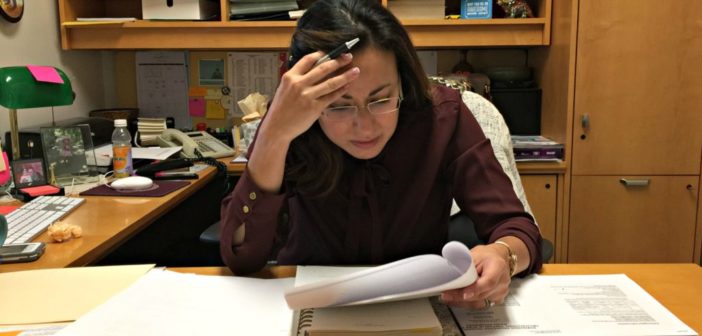Beginning your social work career can be very exciting, yet challenging at times. I learned very early in my career the importance of continuing education courses in order to become a better social worker. In a sense, you have these high expectations of the social work field and wonder how you can start integrating social work theory into your practice.
In particular, I struggled with writing treatment plans the most, which I felt I had not practiced at all. On my first day of working as a social worker, my inner voice ran wild. I thought to myself, “Okay, so what now?” I was only taught the theory and understood the foundation of treatment plans, but had no real practice. Well, there I was with treatment plans staring me in the face. I had no choice but to get it together. I said to myself, “I guess I have to figure out what this whole treatment planning business is about.”
After I talked myself off the ledge, I realized I have 50 people on my caseload. At this point, I feel like I don’t even have time to think. I remember something in graduate school about taking a step back to reflect, but I don’t have time to do that right now. I have another client to see, so how am I supposed to think clearly to figure how to make this treatment plan unique or “individualized.” I think I heard my boss say something like that.
This was me years ago, and I was frustrated because every job had different paperwork and made me start to feel like I could not do direct service. I never realized how much writing there was in social work. All we do is write. Why didn’t I get this message in class? Or was I too busy dreaming of being that Mother Teresa and saving the world. Needless to say, I had to figure it out! I have had supervisors that don’t read my notes, and let’s not discuss audits. I wondered why auditors were reviewing my notes and felt anxious because I knew they were not perfect.
In the midst of our daily hectic grind, time is ticking and paperwork is piling up. Yet, it was then that I realized how valuable it could be to take a moment to reflect on how we do things. It is in continuing education classes that we can sit still and absorb the techniques we need to learn to be efficient in our work. The more we educate ourselves and practice, the less likely we will burnout. Learning how to become better social workers is an ongoing process. It is crucial that we continue to learn how to best serve our profession and the clients we serve through continuing education.
To learn about continuing education opportunities at Fordham University Graduate School of Social Service visit our website.
Keila Zapata-Kelly, MSW Administrator of Continuing Education Fordham University Graduate School of Social Service 113 West 60th Street New York, NY 10023 kzapatakelly@fordham.edu



